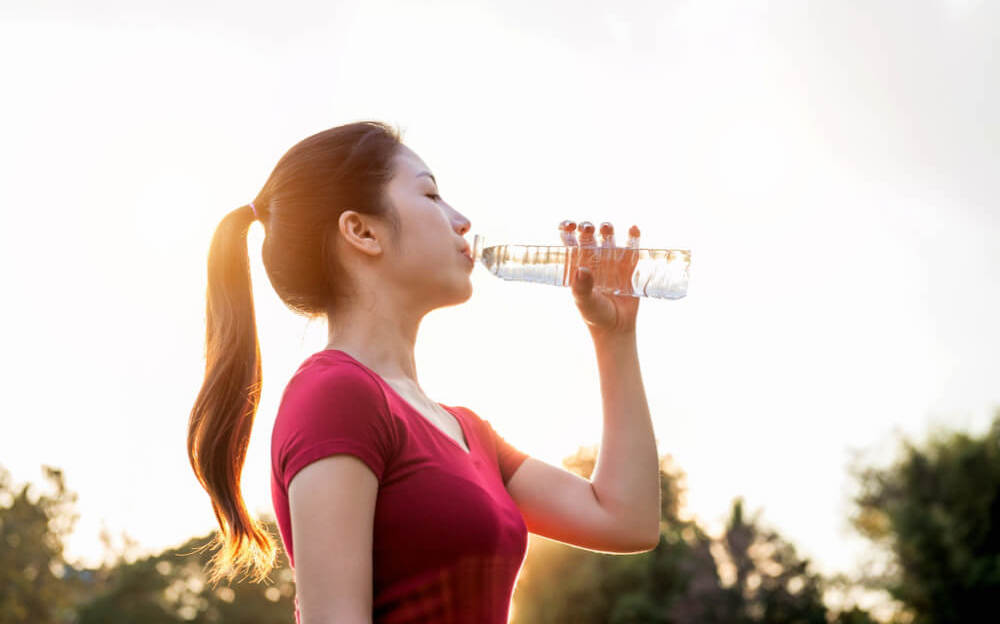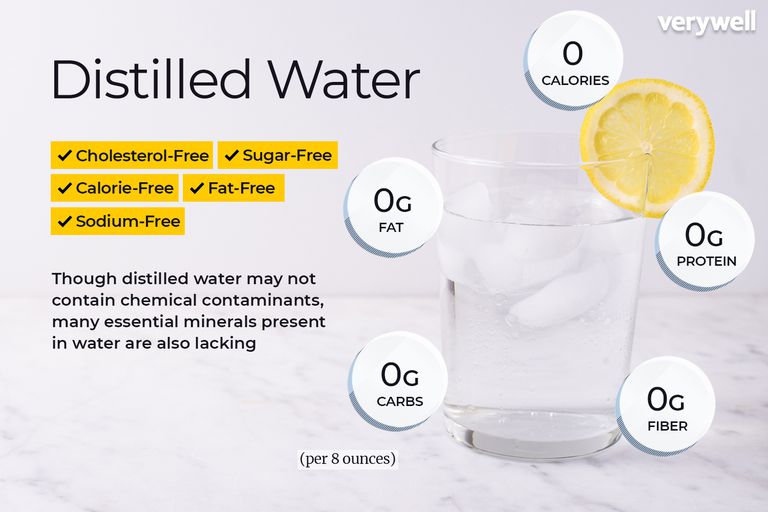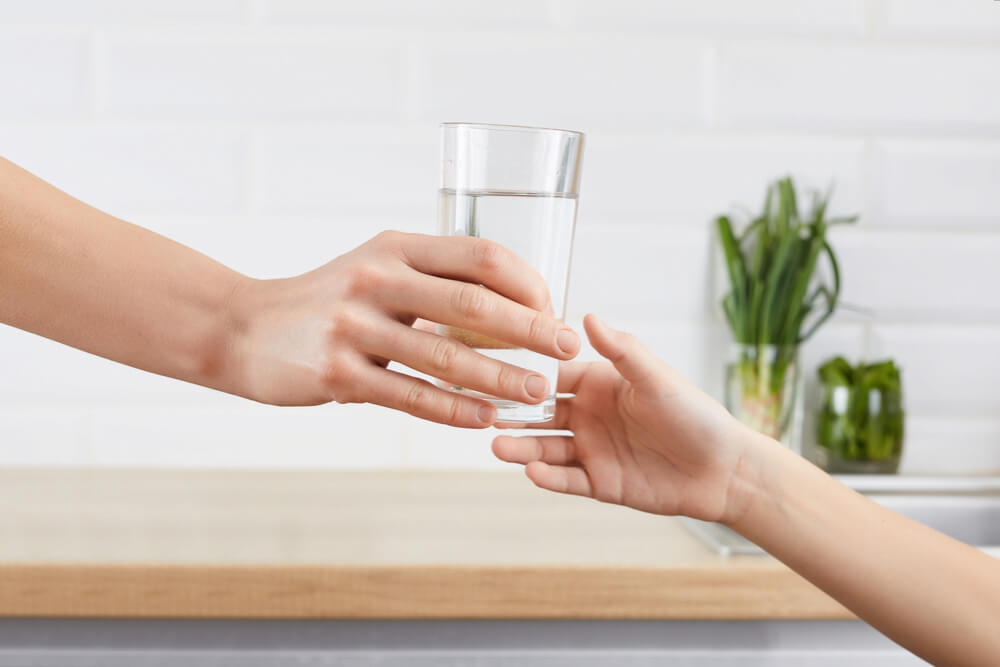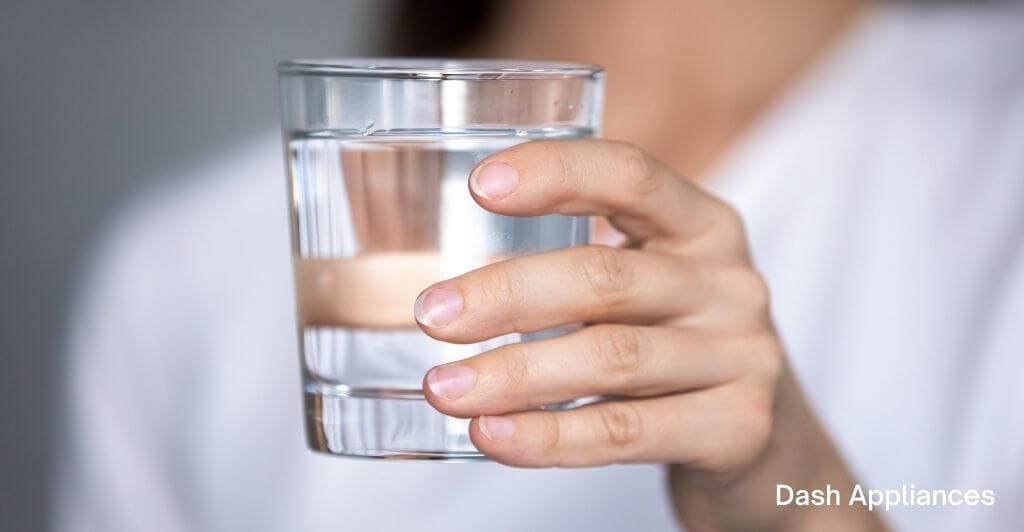Many people have a hard time determining which water type is best to drink with so many different types on the market. So, it’s no surprise why you wonder if distilled water is safe to drink.
Distilled water is not too different from what flows out of the kitchen faucet, but it goes through a process that sets it apart from other types of water. Keep reading, and get to know more about distilled water and if it is safe to drink!
What is Distilled Water
Distilled water refers to boiled water where impurities are removed. Then, water is condensed from a steam back to its liquid form. This process removes almost all minerals, chemicals, and toxins from the water.
Since the method does not require added substances or complex devices, it is considered a natural purification.

Drinking distilled water has a less chance of suffering from waterborne illness, depending on the water source. It is clean and ideal for cleansing, and it is also more pure than mineral and spring water. Pharmacies and laboratories prefer it due to its high purity.
Distilled water is also called as deionized or demineralized water. It helps reduce the risk of the disease since the distillation process removes waterborne pathogens.
According to the United States Environmental Protection Agency (EPA), low levels of specific harmful chemicals are allowed in drinking water, and non of those chemicals are found in distilled water.
As long as people get essential minerals from another source, drinking distilled water is perfectly safe. If a tap or bottled water presents trace amounts of sediments or chemicals, distilled water is a healthier alternative.
Is It Safe to Drink Distilled Water?
People have nothing to worry about distilled water because it is safe to drink. Through the distillation process, no disinfectant or chemicals are added to the water.
While it is safe to drink, many people find it bland or flat because magnesium, sodium, and calcium are not present. What is left out is just oxygen and hydrogen.

Distilled water intake is safe if in moderation and part of a balanced diet. On the other hand, if it is the only water-type someone drinks, it may present some potential health risks.
Those problems arise due to a lack of minerals and possible changes to the body’s balance of pH, minerals, fluid, and electrolytes.
Common Uses for Distilled Water
According to the Centers for Disease and Prevention (CDC), distillation removes contaminants, such as sulfate, sodium, nitrate, lead, chromium, cadmium, barium, arsenic, and other organic chemicals.
It also eliminates protozoa like giardia and cryptosporidium, viruses like rotavirus, norovirus, hepatitis A, enteric, and bacteria like E. coli, salmonella, and shigella.
Since distilled water lacks various minerals and chemicals, its purity is ideal for several uses, including:
1. Cosmetics
Distilled water is one of the critical ingredients in shampoo, deodorant, moisturizer, and other cosmetic products.
2. Automobiles
Distilled water does not interfere with batteries or corrode metal engine parts because it lacks minerals.
3. Laboratory Tests
Distilled water has no minerals or chemicals that will affect or react with the laboratory experiment’s accuracy.
4. Medical Procedures and Tools
Hospitals and medical facilities clean equipment using distilled water to prevent infections and contamination. For example, a kidney dialysis machine filters waste from blood using ultra-pure water.
5. CPAP Machine
A CPAP humidifier is filled with distilled water when used for sleep apnea. This water helps humidifiers last longer.
6. Infant Formula
When making an infant formula, distilled water is mixed with it if the baby’s immunity is weak.
7. Iron
Distilled water is also effective at preventing scale buildup when ironing clothes.
What are the Benefits of Drinking Distilled Water
Whether water comes from the regular tap, artesian well, or a natural spring, all water may have trace amounts of pesticides, bacteria, minerals, and other contaminants. The distillation process gets rid of all those impurities.

Here are the benefits of drinking distilled water:
1. Keeps the Body Hydrated
Drinking a sufficient amount of water is essential for overall health and wellness. Distilled water helps keep your body hydrated while getting critical minerals from food sources.
2. Low in Sodium
Individuals prefer distilled water on low-sodium diets due to a lack of sodium content. However, if you plan to make this water part of your diet, discuss it first with a registered dietitian or your doctor.
3. Safe for Compromised or Suppressed Immune Systems
Doctors recommend drinking distilled water if you have a suppressed or compromised immune system because it is free from harmful organisms. For example, cryptosporidium exacerbates or causes illness. Distillation kills them.

4. Cleanses the Body
You consume water with no additives when you drink distilled water. Since it is pure, it helps cleanse the body.
5. Reduces Risks of Illnesses
As you drink distilled water, your body is free from waterborne pathogens. Many waterborne bacteria that cause various diseases do not survive during the distillation process.
6. Less Harmful Chemicals Consumption
If your body is exposed to chemicals through drinking, you become vulnerable to diseases. So, ensure that the water you drink is free from harmful chemicals. Distillation removes all those chemicals that can harm your body.
Potential Side Effects of Distilled Water
If you drink only distilled water, the main risk is a lack of dissolved minerals, including potassium, calcium, and magnesium. With the bland taste, you may reduce your water consumption.
You may also experience reduced metabolic function or increased urine output, leading to electrolyte imbalance.
Not getting enough minerals like calcium and magnesium in the diet makes you vulnerable to preterm birth, fractures, and heart diseases. Distilled water also removes fluoride, which is necessary for fighting cavities.
Distilled Water vs. Purified Water
Are you torn between distilled water and purified water? Do you want to know the difference between the two? Then, check out the table below:
| Distilled Water | Purified Water |
| Created through the distillation process | Filtered through deionization or reverse osmosis |
| Gets rid of minerals such as calcium, magnesium, etc. in the water | Contains essential minerals while removing impurities and chemicals in the water |
| Cleanest water | Healthier water |
Is Bottled Water Distilled?
Bottled water often undergoes a filtration process instead of a distillation process. In other words, the bottled water you drink contains essential minerals affecting the nutrition and taste of the water.
However, distilled water is considered “entirely pure water” because distillation gets rid of essential minerals and impurities.
How to Make Your Own Distilled Water
Even if you are at home, you can make your own distilled water. Check out the steps below:
- Step 1: Get a large pot and fill it with water halfway.
- Step 2: In the pot’s lid, tie a cup to hand it right side up within the pot once the lid is shut. Ensure that the cup is high enough within the pot, and it should not touch the water.
- Step 3: Boil the water for about 20 minutes. This process creates vapor and condenses it back into the water.
- Step 4: The water that dripped down into the lid has been distilled.
Final Thoughts
Distilled water may not drastically improve someone’s health, but it is still safe to drink. You can drink distilled water as long as you get enough essential minerals from your diet and do not mind the taste.
Plus, this water is helpful around your home, from the vehicle’s cooling system to filling your aquarium.
FAQ
Why is it bad to drink distilled water?
Distilled water lacks minerals and electrolytes. So, you will miss those micronutrients if you are not taking a well-balanced diet and drink only distilled water. Some people experience magnesium and calcium deficiency, weakness, tiredness, muscle cramps, and even heart disease. In other words, drinking distilled water is only bad if you are not consuming a balanced diet and only rely on distilled stuff.
Is drinking distilled water good for your kidneys?
Distillation removes ionic and unusable minerals that need out of the body instead of being deposited and lead to diseased. If you eat a balanced diet, drinking distilled water will not harm your body due to a lack of dissolved minerals. Distilled water helps cleanse your body by promoting healthy kidney functions.
What are the benefits of drinking distilled water?
Drinking distilled water ensures that contaminants and impurities will not enter your body. These contaminants include pesticides and bacteria, which can weaken your immune system. Distillation gets rid of chemical contaminants, such as sulfate, lead, chromium, cadmium, etc. If you suffer from a compromised immune system, drinking distilled water ensures that your body is free from harmful organisms, such as cryptosporidium. Plus, distilled water is also low in sodium and promotes essential hydration.
What is the healthiest water to drink?
Technically, the healthiest water to drink is hydrogen water due to the antioxidants it contains. It comes in hydrogen molecules acting as powerful antioxidants. These molecules can help the body neutralize any harmful free radicals, slow down aging, and reduce inflammation. Hydrogen water may be the healthiest water, but it does not repair unhealthy lifestyles or diets just like other water types. So, you still need to ensure you will eat a balanced diet and get all the essential vitamins and minerals.
